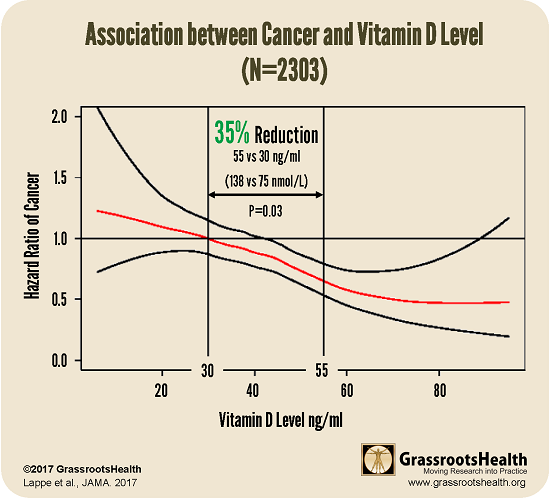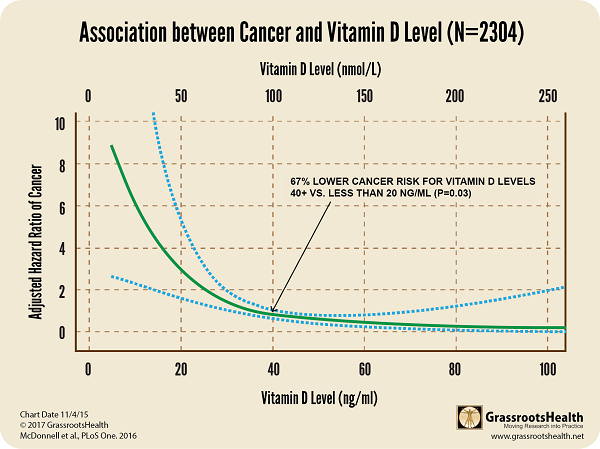 BEFORE you donate to any group, please
BEFORE you donate to any group, please
- Find out if the group has any focus on primary prevention (not mammograms to see if it’s already there). Does this group have a focus to eliminate breast cancer? There has been NO change in the incidence of breast cancer in over a decade.
- Does this group have a KEY recommendation to test vitamin D levels? To get vitamin D levels to at least 40-60 ng/ml (100-150 nmol/L)?
That’s it! IF the answers are ‘YES’ to both challenges, then the women stand to gain quickly, significantly, safely, and inexpensively!
At this point, given our latest research shows a full 80% reduction in incidence of breast cancer with a D level of 60 ng/ml (150 nmol/L), this is the #1 priority–many other things are indeed important–exercise, environmental toxins, weight, etc., but they are not as urgent nor as significant as implementing the research that’s already been done into the population at large.
If the answer is ‘NO’, then please support at least one woman in the D*action Breast Cancer Prevention Society.
A donation of $65 to GrassrootsHealth will go to supporting one woman with testing, education and, for the month of October, a free bottle of Bio-Tech Pharmacal’s D3-5000. This not only helps a specific woman but allows us to use the data from 1000’s to further demonstrate major changes in incidence!
Please support Breast Cancer Prevention NOW

Using data from two randomized controlled trials and the GrassrootsHealth prospective cohort, it was found that breast cancer rates (black line) were lower with higher vitamin D levels. There was an 82% lower rate of breast cancer for women with vitamin D levels at or above 60 ng/ml (150 nmol/L) compared to those with levels less than 20 ng/ml (50 nmol/L) (P=0.006).

A randomized controlled trial found that higher vitamin D levels were significantly associated with a lower risk of all cancers combined (P=0.03), of which 36% were breast cancer. From 30 to 55 ng/ml (75 to 138 nmol/L), the range with tight confidence bands, there was a 35% reduction in cancer risk. Extrapolating to a wider range, a 50% reduction in cancer risk is observed from 20 to 60 ng/ml (50 to 150 nmol/L).

Using data from a randomized controlled trial and the GrassrootsHealth prospective cohort, it was found that cancer risk decreased with increased vitamin D levels. Women with vitamin D levels at or above 40 ng/ml (100 nmol/L) had a 67% lower risk of cancer than women with levels less than 20 ng/ml (50 nmol/L) (P=0.03). Breast cancer accounted for 43% of cases.
Find out what you need to take to reach a target serum level of 60 ng/ml (150 nmol/L). Test your level and then use our calculator to figure out how much additional, daily vitamin D supplement to get from your current level to 60 ng/ml.

 BEFORE you donate to any group, please
BEFORE you donate to any group, please